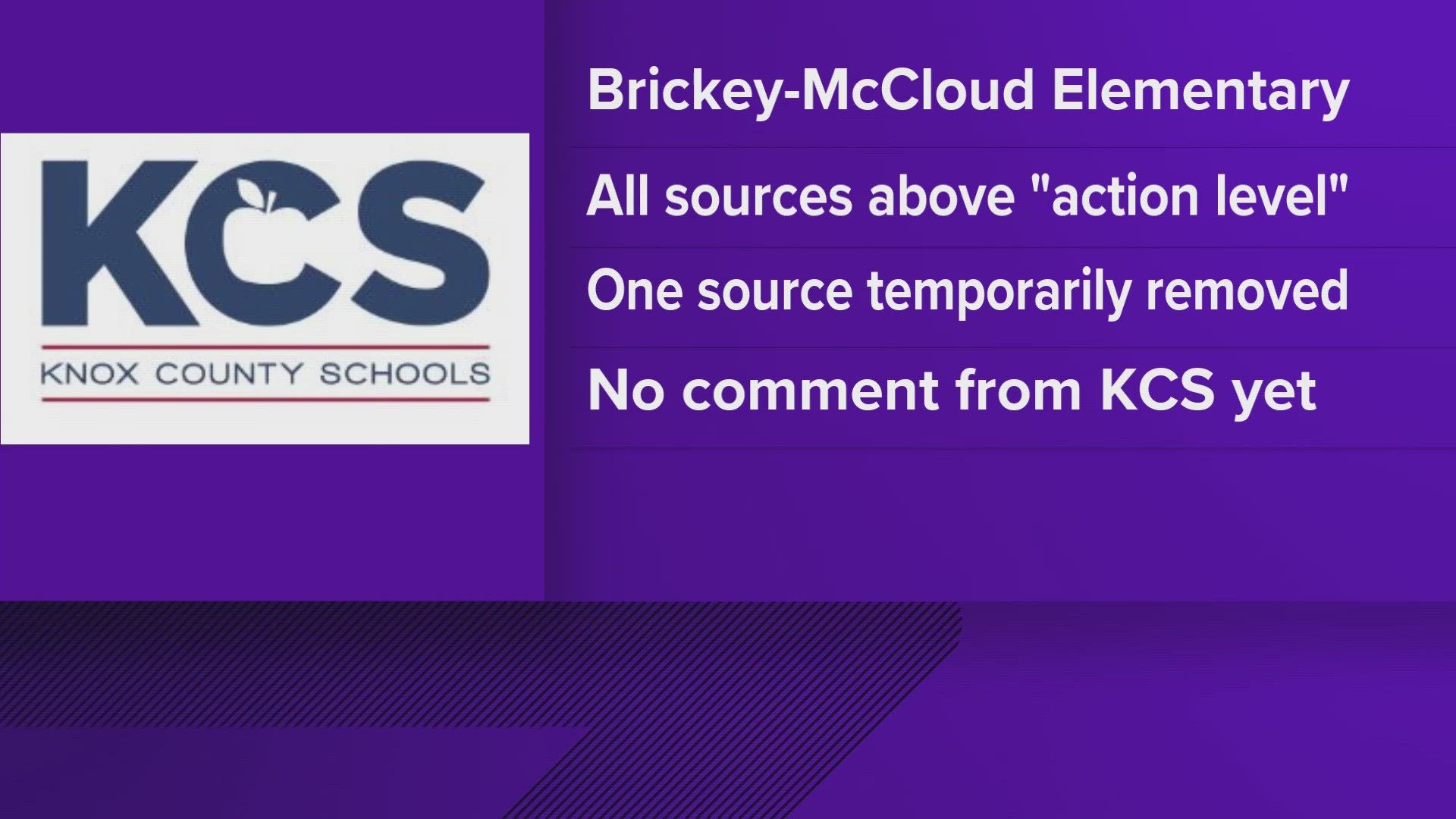KNOX COUNTY, Tenn. — Knox County Schools sent a letter to parents at Brickey-McCloud Elementary School after discovering unsafe lead levels in the water coming from one of the school's kitchen faucets.
In a letter dated Nov. 16, KCS said it recently tested drinking water outlets in the school for lead as part of routine testing that occurs every other year in older schools and every five years in schools built after 1998. The Brickey-McCloud building was built in the early 2000s and it is one of the county's largest elementary schools with nearly 1,000 students and 120 staff members.
Out of the 19 water outlets tested at Brickey-McCloud, one of the faucets returned a test that had high lead levels above EPA Lead and Copper Rule safe drinking water standards. The kitchen faucet tested had water lead levels at 31 parts per billion, which is more than double the EPA's "action level" for lead in drinking water.
KCS is required to notify parents whenever water lead levels test at 20 ppb or higher per a state law that was passed a few years ago, however, the EPA's unsafe "action level" is 15 ppb.
The district said the faucet in question was in the kitchen and was used to fill a braising pan. The braising pan was "only occasionally used to cook large quantity items," meaning children and staff could have eaten food that was cooked with unsafe lead-contaminated water.
KCS said in the letter that its standard procedure is to take any outlets with elevated lead levels out of service immediately and to do follow-up tests to determine the root cause. Based on the results, it then decides whether to clean, replace or remove the water source.
The EPA "action level" is just the minimum enforceable standard where "no adverse health effects are likely to occur with an adequate margin of safety." However, the EPA said the maximum contaminant level goal for any drinking water should be zero lead because lead is toxic and harmful to human health even at low exposure levels. Lead does not easily leave the body and can bioaccumulate over time, causing serious health issues.
Lead is particularly harmful to infants and young children who are developing. The EPA said irreversible physical and behavioral health effects can occur at lower lead exposure levels for children, and doses that would have little effect on an adult can have a significant effect on a young child.
"In children, low levels of exposure have been linked to damage to the central and peripheral nervous system, learning disabilities, shorter stature, impaired hearing, and impaired formation and function of blood cells," the EPA said.
KCS said in its letter that lead, when ingested, can cause health and developmental issues, "particularly in pregnant women, infants, and children under 6 years of age."
Medical experts said parents don't need to panic. Parents should speak with their family doctor if they believe their child has been exposed to lead. Doctors and pediatricians can perform blood tests for lead levels and provide more information about potential health effects and precautions to take. The EPA said state, city and county health departments can also provide these services.
"The Centers for Disease Control and Prevention recommends that public health actions be initiated when the level of lead in a child’s blood is 3.5 micrograms per deciliter (µg/dL) or more," the EPA said.
You can read more about the potential health effects of lead exposure, how it gets into the water, and how the EPA regulates lead levels at this link. Parents can also learn how to protect their children from lead sources at this link.
KCS did not include any information to parents about the immediate risks to children in the letter nor any resources on what parents should do. It also did not include the test results for the other 18 water outlets that were tested at the school.
The letter reassured parents that the district was working to fix the issue "promptly and with the foremost commitment to prioritizing student and staff health and safety." It said it believes "the drinking water in our schools is safe and falls within the standards set forth by the EPA."
10News reached out to a KCS spokesperson earlier Tuesday for more details about the school's lead testing and why it did not include precautions or resources for parents -- but has not received a response as of 5:30 p.m. Tuesday.
In Aug. 2019, 10News reported on similar routine tests that found high lead levels in KCS schools and what actions the district took. At the time, several parents told 10News they had concerns about the letters not mentioning what actions they should take or what symptoms they needed to watch out for.

